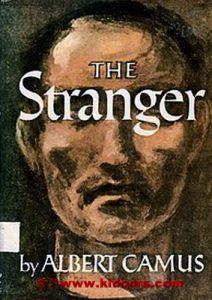
 Literature Guides
Literature Guides
Major Themes of The Stranger
The Irrationality of the World
It is important to remember that Camus was a philosopher who described the irrational aspect of existence. His belief is that there is no rational meaning or order to life. This tendency to deny order and meaning where there is none is central to Camus’s notion of the absurdity of life. Since humans find this difficult or impossible to accept, they constantly assign rational meanings and structures even where there are none.
There is no real rational explanation for how or why Meursault responds to the death of his mother, or Marie, or even his decision to murder the Arab. Nor is there any rational order to the trial that condemns him. Yet everyone else in the novel go to great lengths to find and expose the hidden meaning behind everything. In the end, it is only the indifferent world and the indifferent inevitability of the death that remain.
The Meaninglessness of Existence
Another important feature of Camus’s philosophy is that life has no inherent meaning. This too is part of the absurdity of existence. There is no fate or higher purpose to existence. We struggle against an indifferent world only to die. The absurdity lies in the way people create grand notions of higher purpose and meaning. Throughout the novel, Meursault offers no explanation for any of his thoughts, feelings, or actions. He simply acts.
During his trial, his refusal to acquiesce to the demands of the court to offer reasons and explanations is infuriating and ultimately becomes the primary focus of the trial, rather than the crime itself. No one can accept that Meursault offers no underlying meaning and reason. The final confrontation between Meursault and the Chaplain exposes this central issue. The Chaplain becomes enrages that Meursault will not accept God. But, paradoxically, it is Meursault who seems to prevail with his acceptance that there actually is no meaning at all. He becomes strangely happy with the recognition that death is all there is.
The Material World
Also central to Camus and existentialist philosophy is a focus on the material world. If there is no transcendent meaning to life, and there is no life beyond this life, all that is left is the material, physical world we occupy right now. The novel is preoccupied with the physical landscape throughout. Meursault seems derive meaning only from physical things. He shows no real interest in Marie as a person, but he is drawn to her physical appearance. His motivation seems to be physical gratification over inner development.



